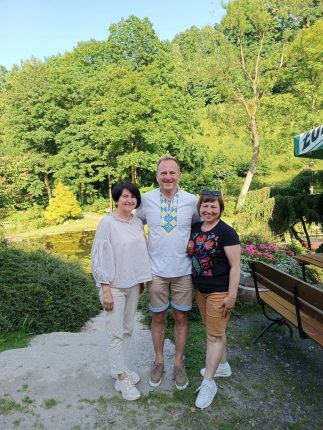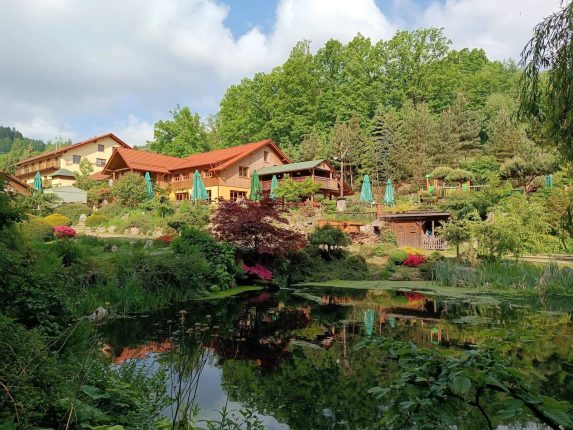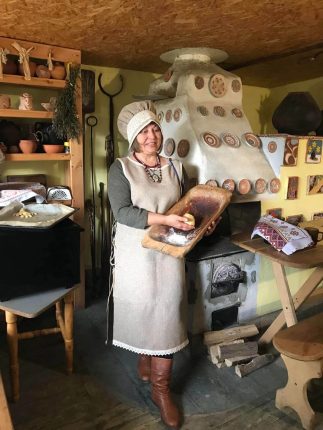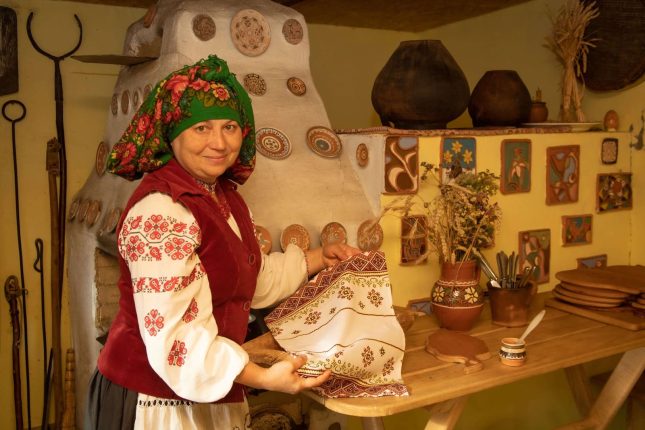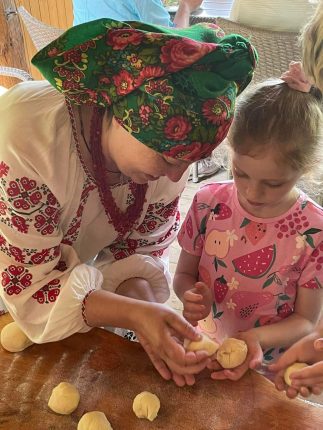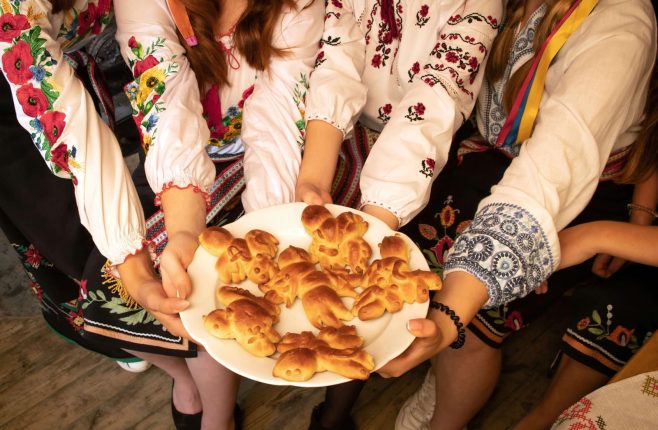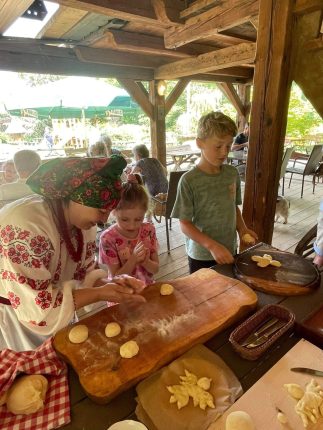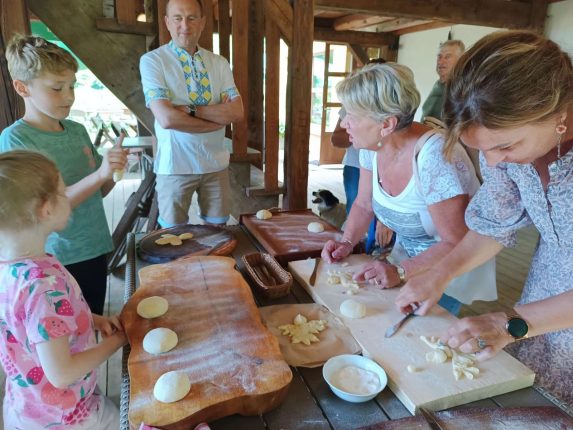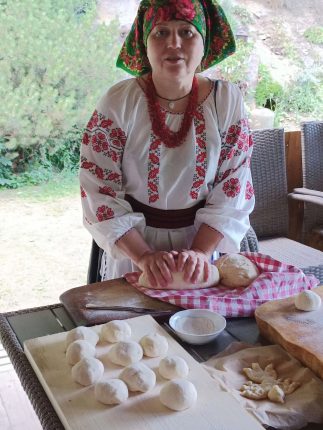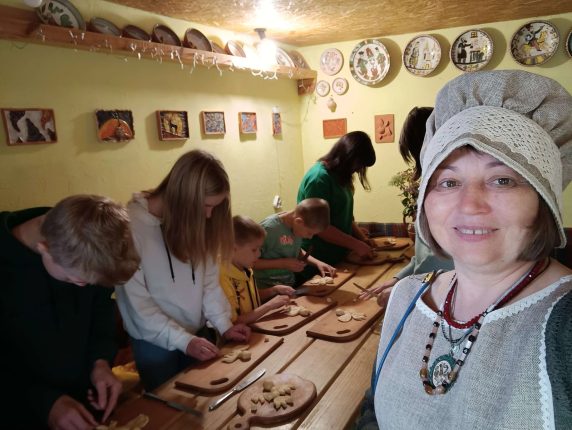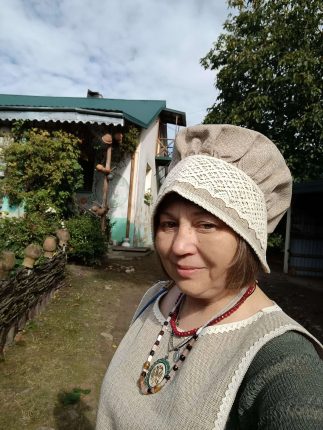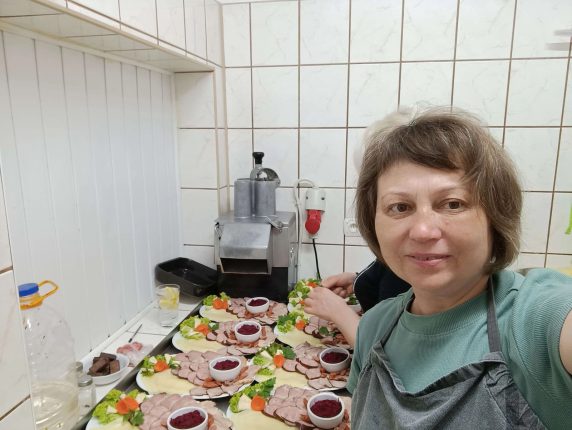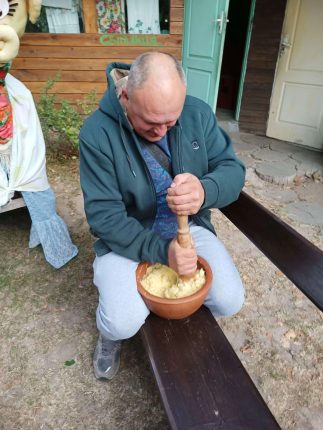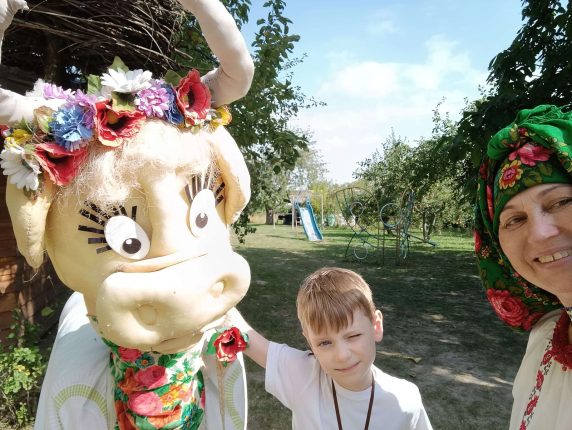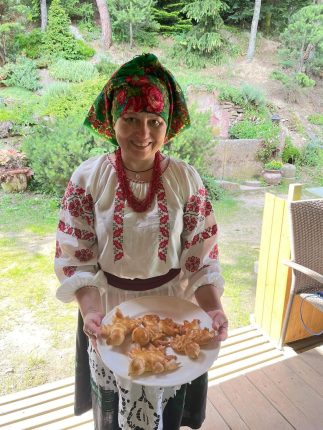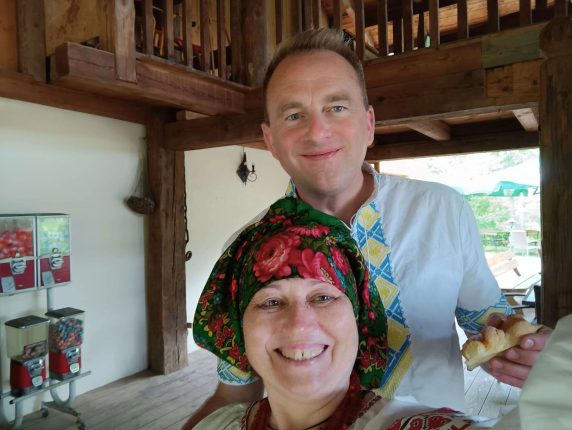
The Taste of Historical Heritage: How Oksana Bas from Ukraine set up a unique tourism business
09/02/2024
Oksana Bas is a leading ambassador for green tourism in Ukraine’s Vinnytsia Oblast. Thanks to her energy, this once little-known branch of the recreation business in Ukraine became a way to showcase the country’s cultural heritage – it attracted tens of thousands of tourists to the Ukrainian countryside prior to the start of the full-scale war. A few years ago, Oksana and her husband started their own business in the village of Haiove, near the town of Bar in Zhmeryn District of Vinnytsia region. They called it the “Podilska Rodyna” (“Podil Family” in English) guest estate.
From a five-story residential building to the countryside
Oksana became interested in green rural tourism quite by chance – she learned about green tourism for the first time in the late 1990s, from a short story aired on a national TV morning show. It presented rural tourism as an amazing and promising business idea.
“I grew up in a high-rise building,” Oksana says. “Back in Soviet times, my father was sent to work in Balakliya, where I was born. When I was five, we moved to Bar, but the countryside mostly remained a summer adventure for me: As a child, I was often sent to my grandmother for summer holidays.”
As a girl, Oksana was attracted to the Ukrainian countryside not only by its boundless space, feeling of freedom, and unity with nature: Over the years, her love for Ukraine’s cultural heritage was formed during holidays celebrated by her large family together in the country, its unique traditions, and its picturesque landscapes.
So while working as a maths and physics teacher in a school, she all at once became interested in this new branch of the tourism industry in Ukraine. In 2000, she established a public organization that brought together people who were interested in the idea of rural green tourism: first in Bar District, and later across the whole of Vinnytsia Oblast. She initiated some educational trips abroad, mostly to Poland, where rural tourism was much more developed. And through the Peace Corps programme, she invited a U.S. volunteer to Ukraine.
“We realized that many familiar things could be viewed in a completely different way, and prospects could be seen where we didn’t even notice them,” Oksana says. “The turning point, though, was a trip to the United States in the spring of 2004. It was during this trip that I finally realized that I should move to the countryside.”
Pandemic prompts big idea
Oksana’s path to opening her own business, however, turned out to be longer than expected. Neither a move to a house built by Oksana’s parents and her husband on the edge of Bar, nor the purchase of property in Haiove in 2007 allowed her to realize her dream – the family simply lacked resources. The money they obtained as a soft loan under a state programme was only enough to cover the purchase of real estate – there was nothing left for repairs. Then loan obligations put financial pressure on the family, and so they had to act.
“The decision came by chance,” Oksana says. “I received a request from a travel agency to arrange a small one-day tour for schoolchildren. We considered the task and developed a programme called ‘Interesting Village of Haiove for Kids.’ It was comprised of a bit of interesting local history, traditions, and a gastronomic component.”
So on their own, Oksana’s family created a guest estate, which would soon become known in Ukraine as “Podilska Rodyna.” In the yard, a charming figurine of a cow, named Lasunia (made from the remains of building materials and a pink rubber glove imitating an udder) greeted the guests. A local female artist made a series of traditional Ukrainian straw motanka dolls.
It was all quite modest, Oksana admits, but the children really liked it. And later the programme gained wider popularity, with buses of schoolchildren from Khmelnytskyi and Vinnytsia visiting “Podilska Rodyna” two to three times a week.
“The visit of a group of schoolchildren from another village was the greatest recognition for us,” Oksana says. “It’s one thing when children from cities and towns come to visit, since this is somewhat exotic for them. But it’s a different thing when children for whom village life is mostly familiar come as well.”
But then the COVID-19 pandemic effectively froze the small business in its tracks.
Oksana decided to use the unwanted free time to her advantage, and began developing a larger programme based on the rich history of the nearby town of Bar, which got its name from Queen Bona Sforza, the wife of Polish King Sigismund I. In 1537, she bought the ruined town of Riv on the banks of the river of the same name, along with adjacent land, and built a new town on the opposite bank. She named the settlement after the Italian city of Bari, where she grew up.
“This is a very historically rich area with extraordinary cultural heritage,” explains Oksana. “The idea is to present history to our guests through the taste of food cooked according to 500-year-old recipes.”
That’s how a tourist legend was born about Bona Sforza Hill, where locals say that the queen stood overlooking the area where she planned to build the town of Bar. Oksana and her family have already managed to build stairs and set up an observation deck on top of the hill. Later, Oksana plans to set up a camping site there, and serve food made to recipes from the times of Queen Sforza. To help with the idea, the community head offered Oksana a small plot of land nearby that had been left without owners and was hence overgrown with bushes, where she could implement her gastro-tourism idea.
Waiting for the war to end
However, the full-scale war destroyed Oksana and her husband’s plans. In the first days after the Russian invasion, Oksana’s husband volunteered to serve in the Armed Forces of Ukraine. The flow of tourists to the area has slowed to a trickle. Still, Oksana didn’t abandon her idea. Officials from Vinnytsia City Council advised her to take part in a grant competition run under the EU4Business: Connecting Companies programme, which is being implemented by Eurochambres with EU support, and which provides opportunities for budding entrepreneurs – in particular those from Ukraine – to get training from European business partners operating in a similar field.
“I applied for a one-month internship program in “Cicha Woda” (“Silent Water” in English) agritourism project in Poland,” Oksana says. “I’d previously been there twice, and seen how a family business grew from an ordinary green tourism object to a hotel and restaurant complex, while still keeping the authenticity and rural charm that people like so much.”
The EU4Business programme covered the cost of tickets and accommodation; and Oksana benefited from a month spent studying with her business mentor in Poland, learning from their experience.
“Just everything was interesting: how the kitchen works, what is cooked, how it is served, how the guests are looked after,” says Oksana.
“For me, Silent Water was quite a large-scale business. Weddings are held there: The complex has three restaurant halls. So, there is a lot to learn: from technologies and the cultural component, to environmental initiatives.”
For now, Oksana cannot fully implement the knowledge she has gained – much depends on working with her husband, who is now defending Ukraine. Meanwhile, she is working on what she can, waiting for victory and her husband’s return, so that together they can realize their big ideas near Bona Sforza Hill.
Stories
-
Katarina Mathernova: If Ukraine had a human face and a human spirit, it would be 10-year-old Roman Oleksiv
-
A regional mission to drive social entrepreneurship: the story of Ksenia Kosukha
-
EU restores safe water supply for 100,000 Ukrainians affected by war
-
Promoting IT during the war: Lviv IT cluster and how EU4Digital helps
-
Frontline digitalisation: Kharkiv IT Cluster collaborations
-
How EU4Youth is driving opportunity and success among young Ukrainians
